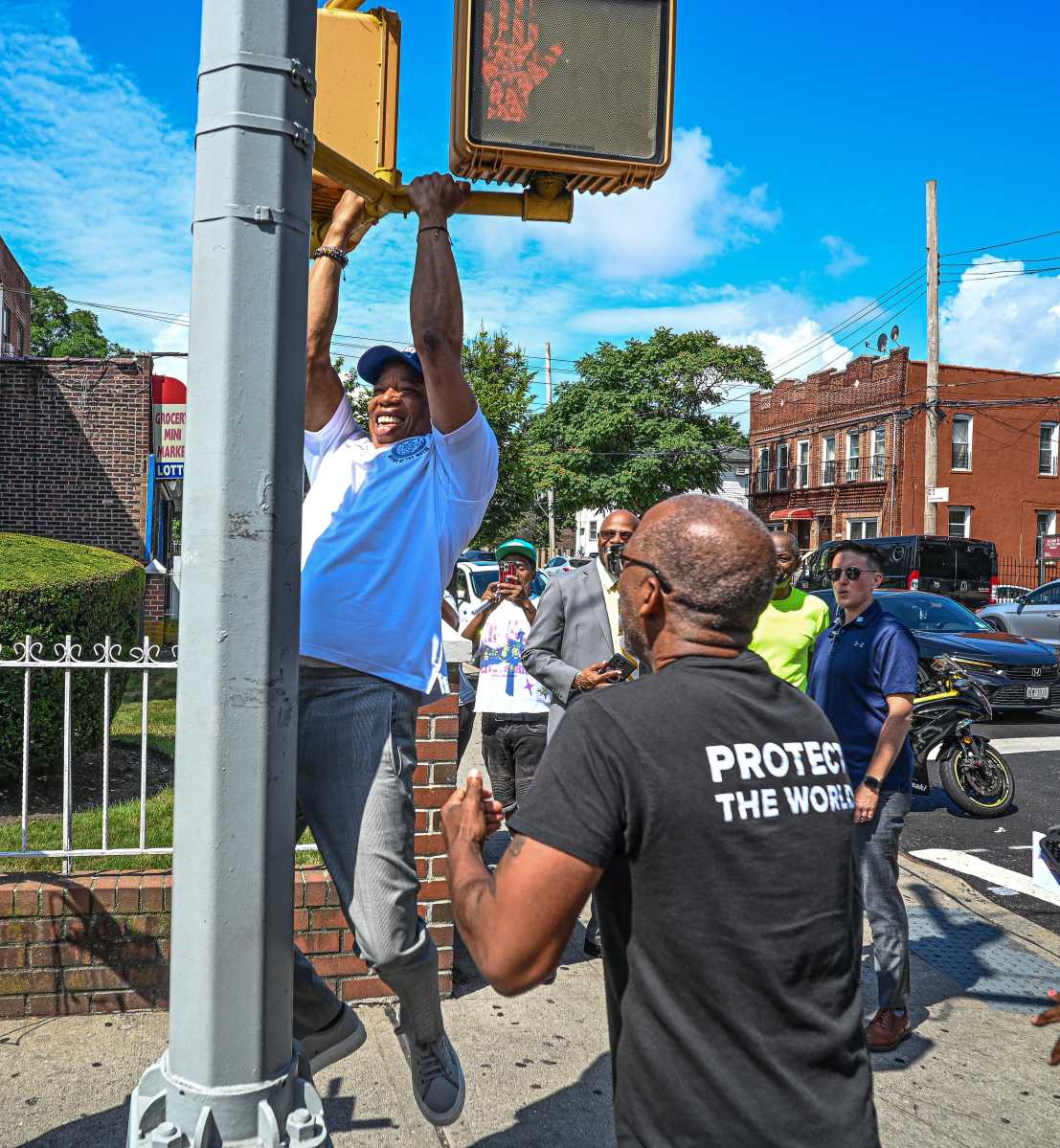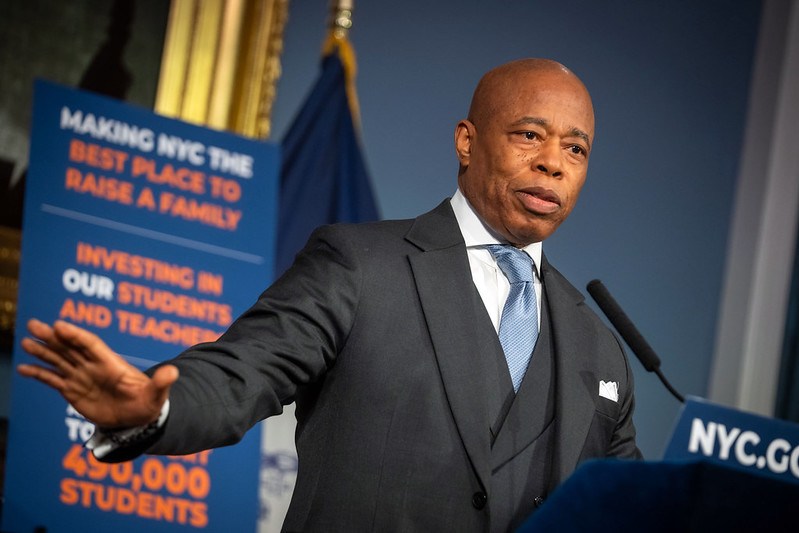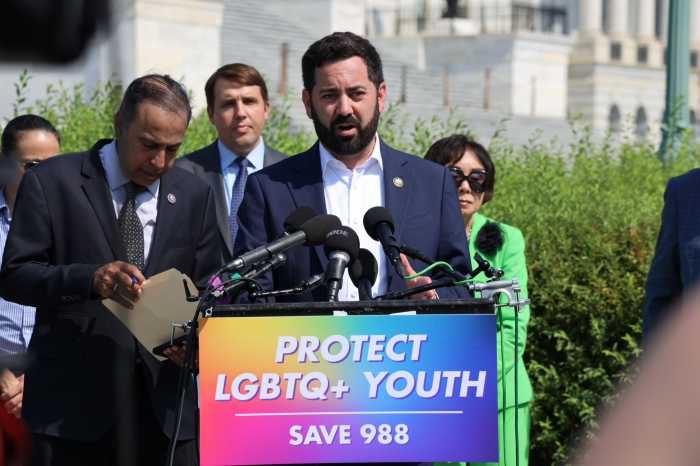A year and a half after they declared victory in their efforts to keep the lid on the impact of a new synagogue on their neighborhood, community activists are back in the trenches battling efforts to change the structure beyond what the city’s Board of Standards and Appeals (BSA) had originally allowed.
Congregation Tefiloh Ledovid was granted a variance by BSA in June, 2007, for the construction of a new synagogue at 2084 60th Street, with certain stipulations. These included a prohibition on commercial catering at the site and a limitation on the height of the new structure to three stories, 10 feet lower than had originally been proposed.
But, say the activists, new plans subsequently filed by the synagogue – the fifth set is now under consideration by the Department of Buildings (DOB) — are different from what BSA had approved. In addition, the residents worry that an increase in permitted occupancy of the building will unduly burden the surrounding residential neighborhood.
“We do not object to the synagogue,” stressed Natalie De Nicola, a member of the Neighbors for the Preservation of 60th Street, which wrote BSA in September requesting that the hearing be reopened. “We were satisfied with the way things turned out when it was approved in June, 2007.”
However, she contended, the synagogue had “decided to go underhandedly behind BSA’s back to change everything.”
Of particular concern, said De Nicola, is the revision of the permitted occupancy, from 100 to 224 people. “That increase in the number of people,” she contended, “is going to exacerbate parking problems and traffic.
“We’re not too concerned about Friday night into Saturday,” De Nicola added. “But, what about the rest of the week, especially when they have affairs? They could have something on Tuesday night with 200 people there.”
Parking is a particular worry, De Nicola said. When BSA approved the plans, with a maximum occupancy of 100, eight parking spaces would have been necessary under the formula that the Department of City Planning (DCP) uses, said De Nicola. However, when the number of required parking spots is below 10, she went on, DCP “waives the parking requirement.”
In this case, said De Nicola, the revised occupancy brings with it a higher required number of parking spots. “If you use the same formula, 15 spots need to be provided on site,” De Nicola noted. “They can’t do that, so they need to go back to BSA for a variance.”
While the prohibition on commercial catering is included in the BSA’s decision, De Nicola said that the filed plans have caused residents to have their doubts. For one thing, she pointed out, the occupancy of the dining room is 79 people.
“With that many people in the dining room,” she remarked, “they are going to do some kind of partying in the basement. The parties don’t begin till after 9 p.m. on Saturday, and they last till 2 or 3 a.m. What are the people in the neighborhood supposed to do?”
Evidence of the property owner’s intentions, said De Nicola, are open to view on the sign in Hebrew at the site that advertises a “hall for parties.”
“Four different rabbis translated the sign,” she noted. “What does that tell you is going to happen there? There will be noise, traffic, congestion. Everything is going to be on that corner.”
While DOB has not yet made a decision on the plans before them, BSA has indicated that the revised plans, in their view, are not dramatically altered from the ones that had been approved.
In an October 3 letter to Leo Weinberger, the attorney representing area residents, Jeff Mulligan, BSA’s executive director, called the changes, ”minor modifications” that he said were “in substantial compliance with the Board’s approval of June 19, 2007.”
Mulligan wrote, “The revised plans have increased the occupancy in the dining room and house of worship without increasing the square footage of these spaces. Please note that the revised plans correct an error in the earlier plans and now reflect the correct occupancy based on the correct section of the building code….Therefore, these changes do not represent a 100 percent increase in the size of the congregation.”
In addition, Mulligan said that the parking requirement waiver “was unnecessary…. Therefore, additional parking analysis is not needed.” Whether or not the plans conform to the building or zoning code, Mulligan added, “is under the purview of the Department of Buildings.”
The BSA Chair Meenakshi Srinivasan wrote DOB’s Brooklyn Borough Commissioner Magdi Mossad, also on October 3, noting that the changes “are in substantial compliance with the Board’s prior grant. Therefore, the Board has no objection to the proposed changes, on condition that the Department of Buildings shall ensure compliance with all applicable provisions of the Zoning Resolution, Building Code or any other relevant law. To the extent that the proposed changes trigger such non-compliance, then the Board’s determination herein will have no effect.”
Eric Palatnik, the attorney for the synagogue, said that BSA had approved only “minor modifications,” through a routine process. “It’s completely above board,” he asserted. “Nobody tried to sneak anything.”
Asked about the change in occupancy, Palatnik noted that the “building envelope didn’t change. The changes were all interior movement of walls, changing the locations of rooms.
“We understand the people in the area had concerns,” Palatnik went on. “We understand the shul made errors in the past, but they have tried to rectify everything. They made errors, but they paid their debt. BSA was not deferential to the shul,” he added. “They gave a lot of deference to the neighbors.”






















